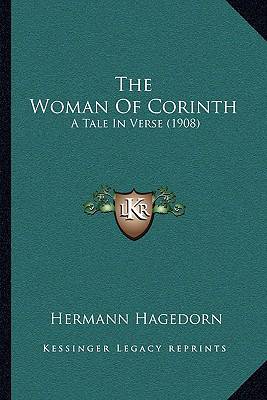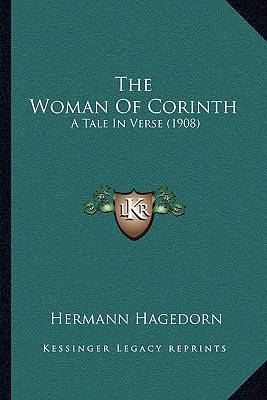
Door een staking bij bpost kan je online bestelling op dit moment iets langer onderweg zijn dan voorzien. Dringend iets nodig? Onze winkels ontvangen jou met open armen!
- Afhalen na 1 uur in een winkel met voorraad
- Gratis thuislevering in België vanaf € 30
- Ruim aanbod met 7 miljoen producten
Door een staking bij bpost kan je online bestelling op dit moment iets langer onderweg zijn dan voorzien. Dringend iets nodig? Onze winkels ontvangen jou met open armen!
- Afhalen na 1 uur in een winkel met voorraad
- Gratis thuislevering in België vanaf € 30
- Ruim aanbod met 7 miljoen producten
Zoeken
€ 27,45
+ 54 punten
Uitvoering
Omschrijving
The Woman of Corinth: A Tale in Verse is a book written by Hermann Hagedorn and published in 1908. The book tells the story of a woman named Lais, who was born in Corinth and became one of the most famous courtesans of her time. Lais was known for her beauty and charm, and many men were drawn to her. However, despite her success, Lais was not happy and longed for a deeper connection with someone. The book follows Lais as she meets a young man named Diphilus, who is different from the other men she has known. Diphilus is not wealthy or powerful, but he is kind and genuine, and Lais finds herself falling in love with him. However, their love is complicated by the fact that Lais is a courtesan and Diphilus is a poor artist. As the story unfolds, Lais must confront her own feelings and decide what she truly wants in life. The book is written in verse and explores themes of love, desire, and the search for meaning in life. It is a poignant and thought-provoking work that offers a unique perspective on the complexities of human relationships.This scarce antiquarian book is a facsimile reprint of the old original and may contain some imperfections such as library marks and notations. Because we believe this work is culturally important, we have made it available as part of our commitment for protecting, preserving, and promoting the world's literature in affordable, high quality, modern editions, that are true to their original work.
Specificaties
Betrokkenen
- Auteur(s):
- Uitgeverij:
Inhoud
- Aantal bladzijden:
- 66
- Taal:
- Engels
Eigenschappen
- Productcode (EAN):
- 9781165650552
- Verschijningsdatum:
- 10/09/2010
- Uitvoering:
- Paperback
- Formaat:
- Trade paperback (VS)
- Afmetingen:
- 152 mm x 229 mm
- Gewicht:
- 99 g

Alleen bij Standaard Boekhandel
+ 54 punten op je klantenkaart van Standaard Boekhandel
Beoordelingen
We publiceren alleen reviews die voldoen aan de voorwaarden voor reviews. Bekijk onze voorwaarden voor reviews.











